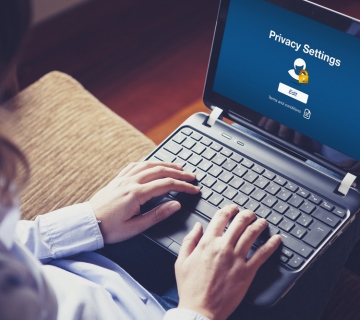In the modern world, it’s almost impossible to imagine life without the internet. We talk on it, we watch films on it, we work on it, we share jokes on it… A life without the web would be a pretty strange one, overall! However, the more and more that the internet is used, the more conscious we must be of potential security issues. If you carry out any form of financial transaction on the net – whether it be selling things on eBay or just paying bills – it’s your responsibility to do everything you can to make sure that your details stay secure. That’s why we got together with the guys from http://www.webhostingbluebook.
Beware renewed contacts
One of the most common forms of attack is the hacking of social media and then the sending of e-mails from the hacked accounts to other people on that account’s contact list. The idea, of course, is that the user will recognise the sender and therefore automatically trust the e-mail, opening the malicious link contained within. This process is called ‘phishing’ (more information is available here). There are two things here that should raise your suspicions: firstly, if the e-mail comes from someone you haven’t spoken to for a while. The second indication that something iffy is occurring is that the e-mail tagline is un-natural. This can be more obvious on some occasions than others, but if the tagline seems strange or not in keeping with the contact’s voice, then double check with them before opening anything.
Use a modern browser

This might well be the silliest mistake that anyone makes on the web. Just like anti-virus software, browsers need to be continually updated to ensure that they’re providing the levels of security that you require. Though it might seem like it, those updates aren’t just to annoy you! If you’re still running a three year old version of Internet Explorer, then get rid of it and download the latest version of Firefox or Chrome. Also, most modern browsers now come complete with add-ons specifically created to help increase security, so take advantage of them. If you’d like to find out more, this link from Tech Republic will help.
Use a firewall
As well as using standard anti-virus software, it can be an extremely good idea to invest in some form of firewall, or (if you haven’t got the cash to spare) to at least make sure that your operating system’s own firewall is working effectively. Firewalls will block any programs from accessing your networks, helping to minimise potential breaches. It’s also worth noting that you can usually allow exceptions, so if there are some programmes you use that require the web, you don’t have to worry about them not being able to gain access
Always double check administration enquiries
Modern Windows systems will now double check with you before you install new programmes, or if a programme is trying to access the internet. Whilst it can be tempting to just automatically click ‘Allow’, always take the time to check exactly what programme is asking for permission, and why it’s doing so. It can be easy to mistake a genuine update for something less scrupulous.



